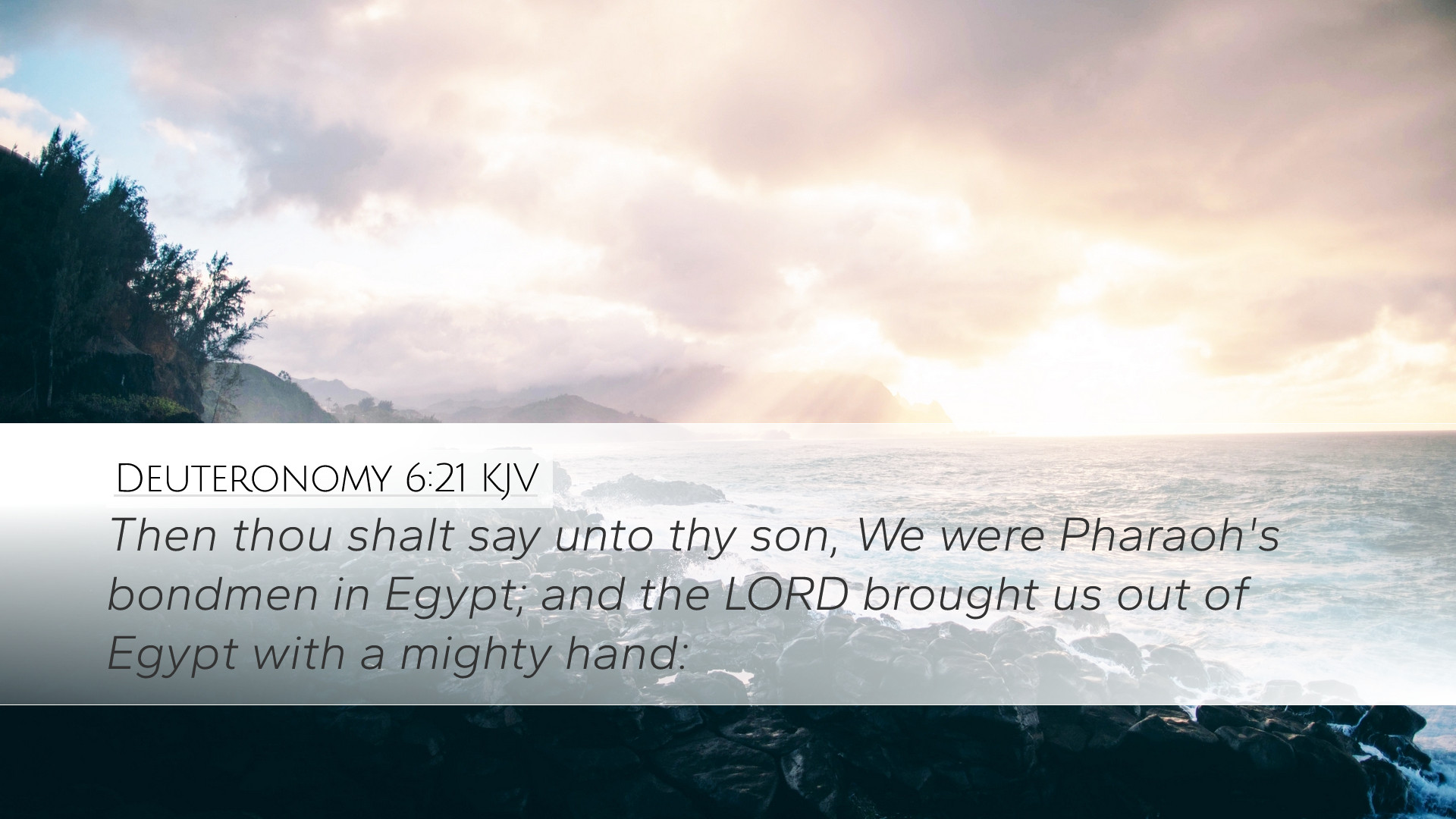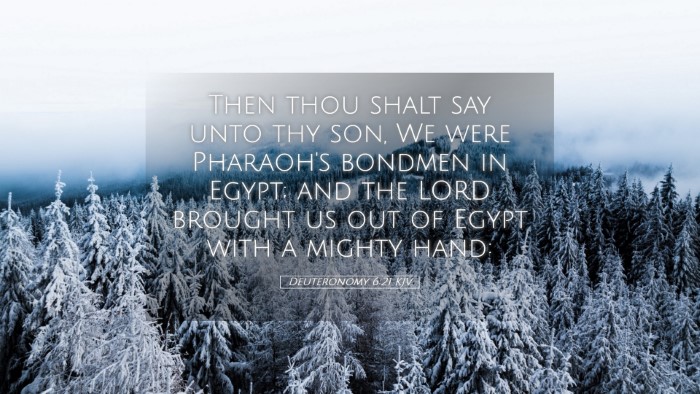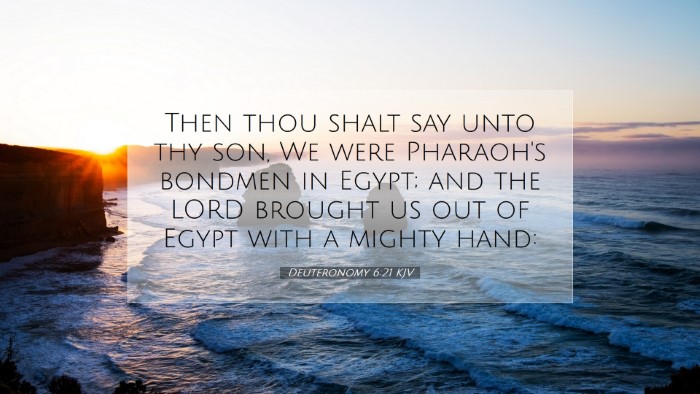Commentary on Deuteronomy 6:21
Bible Verse: "Then you shall say to your son, ‘We were Pharaoh’s slaves in Egypt, and the Lord brought us out of Egypt with a mighty hand.’"
Introduction
The sixth chapter of Deuteronomy encapsulates the core of Israel’s identity and covenantal relationship with God. In verse 21, the command to recount the deliverance from Egypt serves a dual purpose: it reinforces the faith of the current generation and ensures the transmission of that faith to future generations. This commentary will explore the depths of this verse through the insights of various historical theologians.
The Command to Remember
Deuteronomy 6:21 places a significant emphasis on the need to remember and articulate the past as a means of understanding God’s continued involvement in history and relevance to personal faith. Albert Barnes notes that the act of remembering is not merely a cognitive exercise, but a heart-felt act of worship and recognition of God's sovereign might.
The Nature of Testimony
Matthew Henry emphasizes the importance of personal testimony within the family unit. By instructing parents to recount their past—a narrative of deliverance—they strengthen the faith of their children and provide a living example of God's faithfulness. This is reflected in the practice of oral traditions among ancient cultures, where stories were a means of communal faith-building.
The Historical Context
In reflecting on "Pharaoh’s slaves in Egypt," Adam Clarke provides insight into the harsh realities faced by the Israelites. This phrase signifies not only the physical bondage endured, but also spiritual enslavement, underscoring the powerlessness of the people. The liberation from this oppression by the Lord's "mighty hand" symbolizes not only deliverance but also the initiation of a covenant relationship wherein God's authority supersedes all earthly rulers.
The Mighty Hand of God
- Divine Providence: God's intervention in the Exodus is portrayed as a demonstration of His providence and power.
- Theological Implications: The mighty hand reference conveys God's ultimate authority and ability to act in history on behalf of His people.
- Contemporary Application: Believers are encouraged to reflect on their own experiences of divine intervention and protection.
The Implications of Deliverance
The Exodus is not merely a historical event but a profound theological truth. According to Matthew Henry, the act of remembering serves as a reminder of God's unyielding mercy and grace. The narrative is meant to instill confidence in God's plans and commitments to His people, which can be a source of great encouragement in times of trial.
A Call to Generational Faith
Deuteronomy 6:21 anticipates the transmission of faith across generations, showing how vital it is for the current generation to share their experiences with God’s deliverance with their children. Albert Barnes highlights that it is essential for future generations to know the truth of their heritage—being rooted in the stories of God’s faithfulness serves as a moral compass for living in accordance with His commands.
The Response of the People
The appropriate response to God’s mighty acts, as highlighted in the commentary, is gratitude and worship. Adam Clarke notes that the acknowledgment of God’s saving action should inspire a lifestyle of holiness and adherence to the regulations given in the subsequent verses of Deuteronomy.
Worship as a Response
In recounting the personal experience of Israel's deliverance, the act itself is transformed into a moment of worship. Matthew Henry asserts that acknowledging God’s hand in deliverance leads to a heart that desires to glorify Him with obedience and love.
A Model for Modern Believers
For today’s pastors and theologians, Deuteronomy 6:21 serves not only as a historical account but also as a template for preaching and teaching. The focus on storytelling within communities of faith encourages congregants to engage with their own histories and understand God’s action in their lives.
Encouraging Testimony in the Church
- Building Community: Testimonies serve to build a sense of community and shared faith among believers.
- Faith Education: Encouraging the sharing of personal narratives strengthens the faith of individuals and communities alike.
- Generational Remembrance: Churches should cultivate traditions that remind congregants of God’s past interventions.
Conclusion
Deuteronomy 6:21 is a powerful reminder of the importance of historical memory in the life of faith. The insights from Matthew Henry, Albert Barnes, and Adam Clarke collectively underscore that this verse captures the essence of witnessing God’s deliverance and the imperative of passing this knowledge along to future generations. In doing so, we fulfill our responsibility to raise a generation that knows and loves the Lord, rooted in a shared narrative of His mighty acts.


